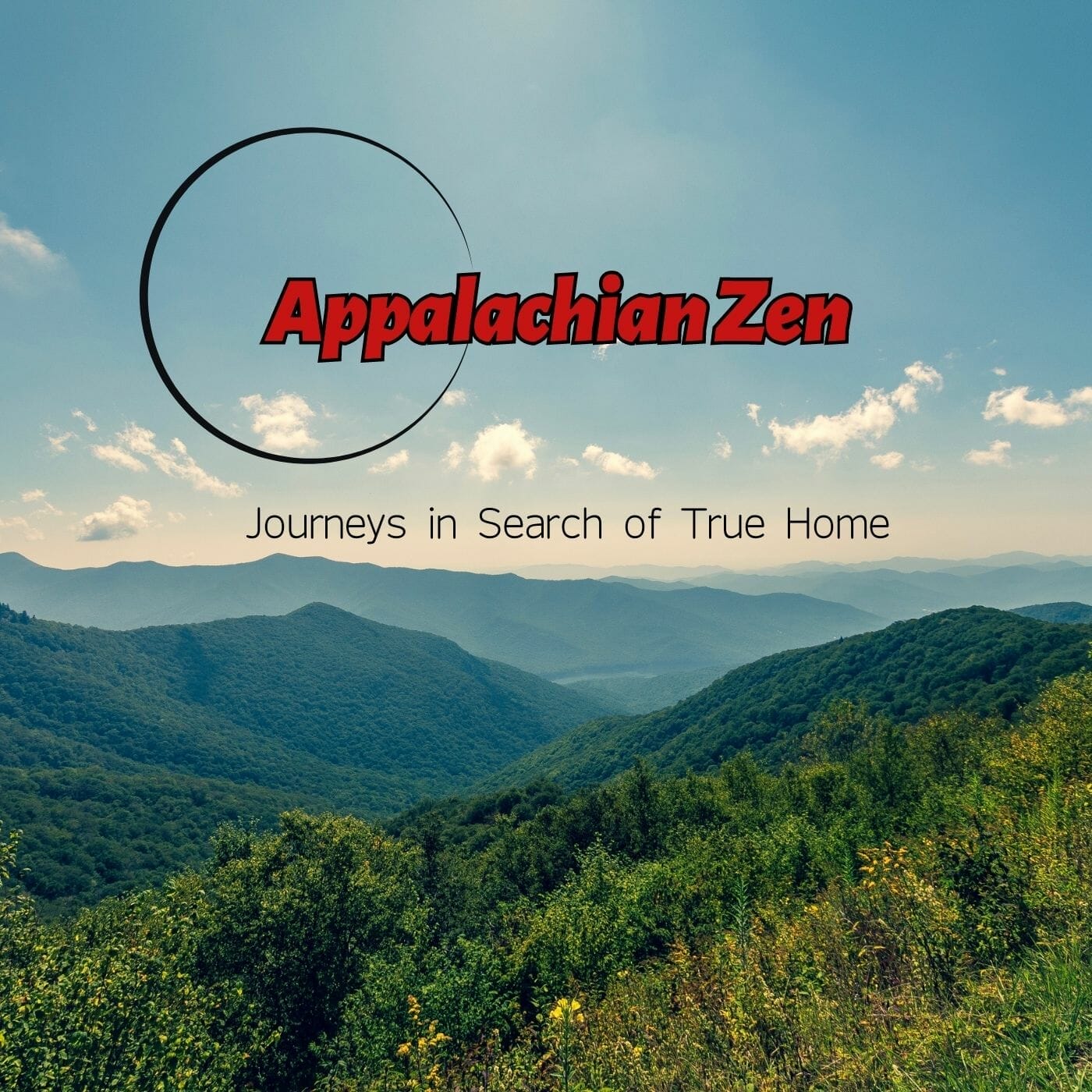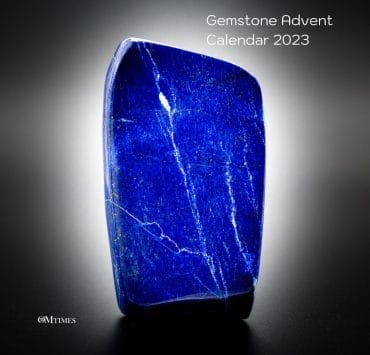Zen Journeys in Search of True Home

Steve Kanji Ruhl, an ordained Zen Buddhist minister, is the author of Enlightened Contemporaries and two volumes of poems, The Constant Yes of Things and Paintings of Rice Cakes Satisfy Hunger.
Appalachian Zen: Journeys in Search of True Home
By Steve Kanji Ruhl
Light grazes the peaks of the Kitakami Highlands.
Light burnishes the rice flats.
A Zen priest, Watanabe, climbs the stairs of Taiyo-ji’s bell tower—the land of the rising sun.
He chortles to himself, a round-faced rishi with a shaven scalp. Clad in robes of indigo. Drape of khaki across his shoulder. His eyes are lit, as always, with imperturbable private mirth. I follow him. We stand on the belfry, its plank flooring littered with yellow fans of ginkgo leaves.
I rose at five-thirty in a room brittle with cold. Dressed, then moved outdoors into fading darkness. Incipient radiance seeped the air. Fog lifted off the Kitakami River. I rode a bicycle past cherry and persimmon trees. Rode past tile-roofed houses, azaleas, chestnuts, past vegetable gardens, and sentry pines, the six-foot protective walls of bristled hedges, and streets of the former samurai district. I saw no one.
Chuffing squawk of a raven.
Sunshine gathering now in the east. Sky is the blue gaseous heart of fire.
Watanabe chants orisons, bent stiffly, hands palm-to-palm. I reach for the log suspended in its rope harness. I pull back and then, in an uninterrupted glide, strike the massive iron bell. The sound – a shaped sonic pulse in the air, stately, ferrous, with a bass underhum – ripples over canted rooftops and cedars and the Buddhist cemetery of Kanegasaki, Japan.
I bow. During the past month, I’ve learned what to do: I make a steeple of my pressed hands. Watanabe chants. When the bell’s vibrato begins to dim, when it nearly subsides, I reach and pull and strike again. Eight times.
Inside Taiyo-ji Temple, I sit, knees to the floor, astride a black zafu. Stare at the mesh of the tatami mat. Stillness. Breath.
A monk materializes behind me, unseen, noiseless as the thoughts I quell minute by minute, and he presses the stick, kyusaku, to my spine to straighten my posture; he vanishes. Now breathing. Now stillness.
Stillness breathing.
I am the first foreigner to sit zazen at Taiyo-ji in the temple’s four-hundred-year history.
I can only guess what my father dreamed for us as he drove through the early morning darkness of fading stars, through blizzards, or through rain, humming his favorite Kingston Trio songs. On his way to work, he shared lonely stretches of asphalt with an occasional highballing Mac diesel rig. Then, he’d drive into the dawn, watching for deer that might step gingerly from pine groves into his headlights on the long straightaways between Lock Haven and Bellefonte. He worked as a drafting engineer at the Titan Metal factory. My dad toted his lunch bucket and drove his gas-reeking Ford clunker eighty miles round-trip every day, Monday through Friday, to glean for us paychecks totaling eleven thousand dollars a year. We lived in a trailer. Our trailer sat among other trailers at the edge of scrub woods, off a two-lane blacktop called Route 220 in Clinton County, Pennsylvania.
My dad and my uncles had survived shell bursts and machine guns in the South Pacific and in lethal fields of Italy. The uncles and buddies: noisy, profane guys with cock-of-the-walk grins, their hair bristlecut, their shirtsleeves rolled up past their biceps, men who shadow-punched and hollered at the TV – “Attaboy, jab, jab, goddammit, hit him with yer left!” – when the fights were on, men who bluffed and wheeler-dealer through five-card-stud in kitchens on Saturday afternoons, smoking Luckies, pouring libations of Carling Black Label while the wives gibbered over coffeecake. They were the first men I knew. Guffawing. Backslapping. Most of them worked the pulp tubs and cutters at Hammermill in Lock Haven all night, eleven-to-seven shifts. You could watch specters of mist hazard the river at sunrise.
My mom pinned our wash to the wind, and she planted marigolds. She blared South Pacific and My Fair Lady on the hi-fi, testament – I realize only now – to unplumbed yearnings. When she was a little girl during the Depression, she lived with her mother and sisters and her besotted stepfather a few miles beyond the outpost of White Pine, on a little husk of a farm alone in the woods.
In our trailer, when I was a kid, we watched Walt Disney’s Wonderful World of Color on a boxy black-and-white TV. We heard hound dogs moaning at the Penn Central freight trains that racketed out through the Appalachian Mountains at night – out past the barns with “Mail Pouch Tobacco” painted on wood long abused by weather, out past the truck farms and junk lots, the neglected bridges of trestled iron, past boneyards, the cow flop pastures, and the forests, the Susquehanna. On winter nights, we heard high school wrestling matches on the radio, sweaty farmboys from Bald Eagle-Nittany and Warriors Run on the mat, angling for half-nelsons in a gym full of roaring millhands. We scrimped for school clothes ordered from the Sears catalog.
Three times a week, we shared bathwater. Every May, we saw fly fishermen troll Bald Eagle Creek. Every November, Clinton County honored the first day of buck season and doe season, official school holidays, like Thanksgiving or Christmas. Men stopped shaving and grew their buck beards. They wore black and red Woolrich parkas, hunting licenses safety-pinned to the backs. Men disappeared into woods around Swissdale or Tangascootac in rattletrap cars and pickups. They stowed Remington thirty-ought-sixes in the gun racks. When they returned, driving through Lock Haven, they had big fulvous six-point whitetails lashed to their hoods and fenders, the white bellies flecked with blood, heads dangling under the weight of antlers, each deer’s eye a black marble.
Clinton County, Pennsylvania. Heart of the Keystone State, fifty miles east of the anthracite fields, land of backwoods factory towns, tough-luck Appalachian farms, and skid row country motels, land of cinderblock bars with “Genesee” in red neon and Johnny Cash on nickel jukeboxes.
Click HERE to Connect with your Daily Horoscope on OMTimes!
Visit Our Astrology Store for Personalized Reports
About The Author
 Steve Kanji Ruhl, an ordained Zen Buddhist minister, is the author of Enlightened Contemporaries and two volumes of poems, The Constant Yes of Things and Paintings of Rice Cakes Satisfy Hunger. He received his Master of Divinity degree from Harvard University and has been a speaker at Harvard. Center for World Religions, Yale Divinity School, the Omega Institute, and elsewhere. A Buddhist adviser at Yale University, he teaches through his Touch the Earth cyber-sangha. He lives in Leverett, Massachusetts.
Steve Kanji Ruhl, an ordained Zen Buddhist minister, is the author of Enlightened Contemporaries and two volumes of poems, The Constant Yes of Things and Paintings of Rice Cakes Satisfy Hunger. He received his Master of Divinity degree from Harvard University and has been a speaker at Harvard. Center for World Religions, Yale Divinity School, the Omega Institute, and elsewhere. A Buddhist adviser at Yale University, he teaches through his Touch the Earth cyber-sangha. He lives in Leverett, Massachusetts.
OMTimes is the premier Spiritually Conscious Magazine. Follow Us On Facebook, Twitter, Instagram, Linkedin, Pinterest, and Youtube
OMTimes Magazine is one of the leading on-line content providers of positivity, wellness and personal empowerment. OMTimes Magazine - Co-Creating a More Conscious Reality






